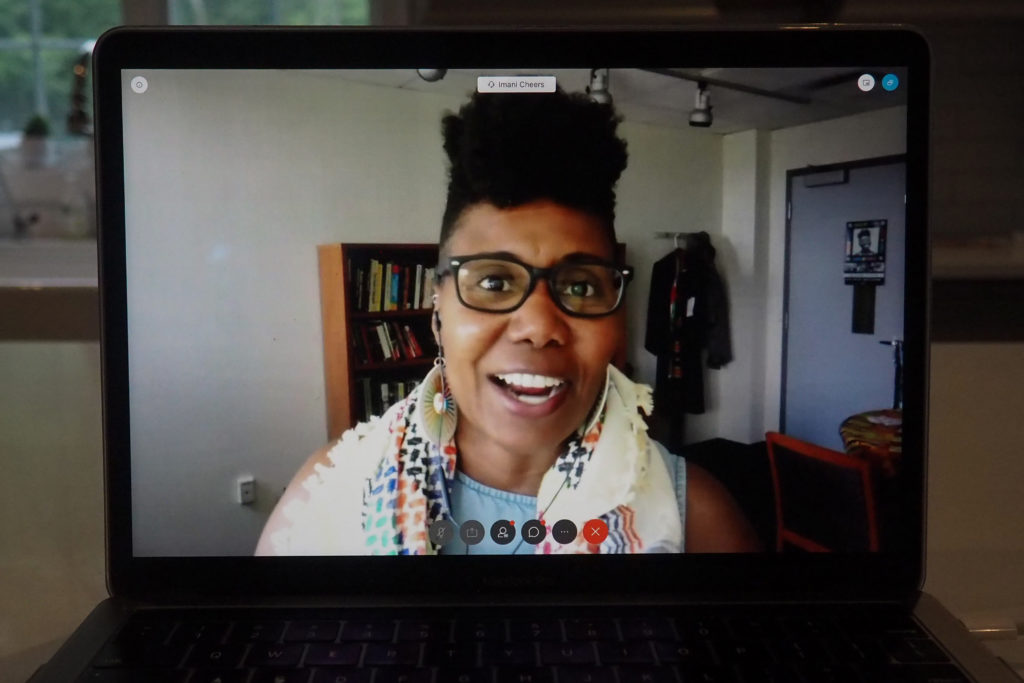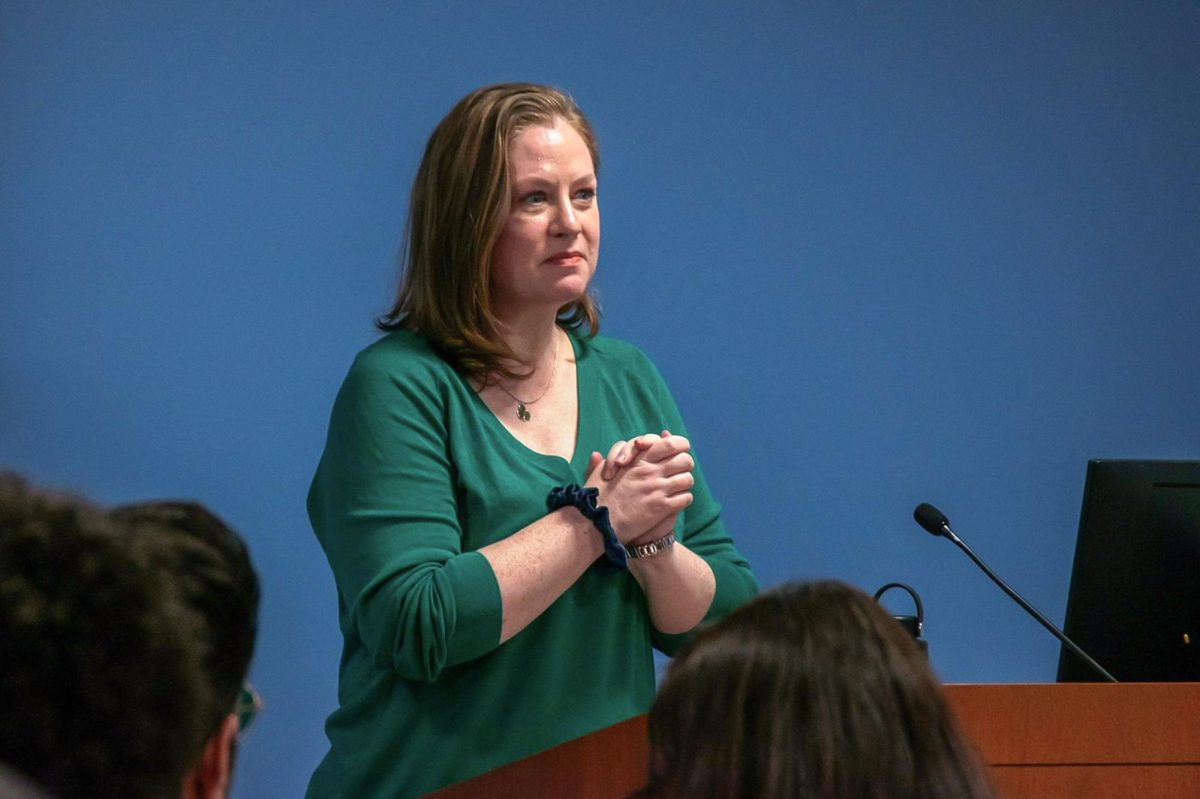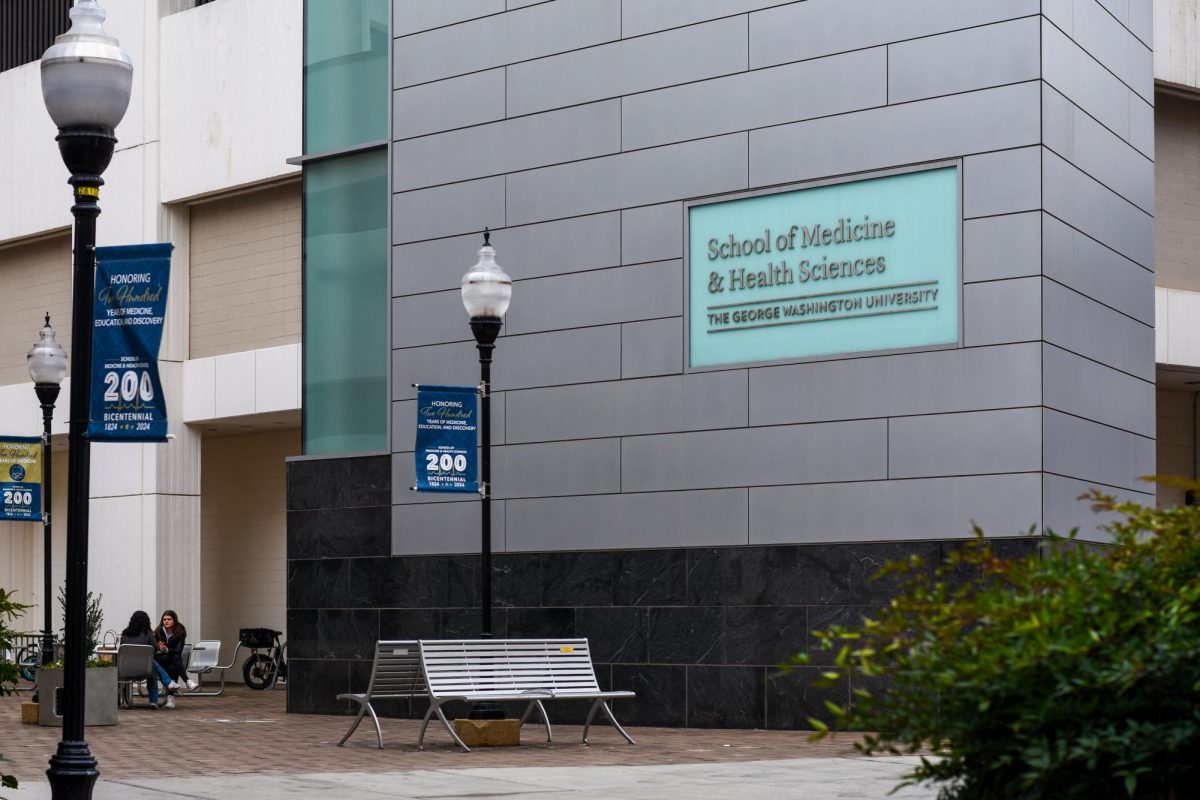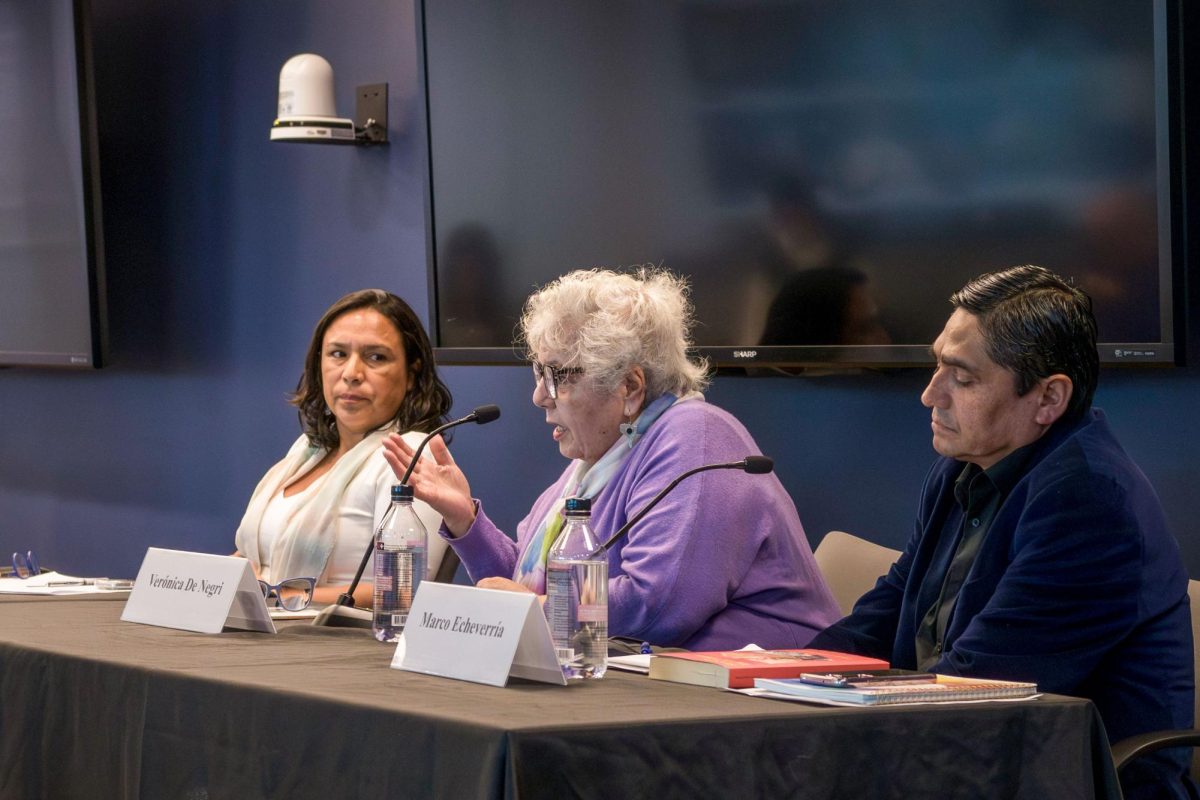More than 100 students tuned into one of the final virtual panel discussions of #GWinSolidarity Tuesday where GW community members spoke about their careers in promoting justice.
Members of the Office of Diversity, Equity and Community Engagement created a four-week array of virtual events to educate the community about racism following the recent killing of Black people and police brutality protests. Jordan West, the director of University diversity and inclusion programs, hosted “Creating a Career of Justice” along with two officials and one faculty member from the GW community to discuss topics like pursuing justice in the workplace and starting conversations about race in the workplace and daily life.
West prompted the panelists with attendees’ questions during the viral event via WebEx – a video conferencing website. She said the events aim to create conversations about what the GW community has done in the past to discuss racism and what members can do in the future like speaking up about unjust actions.
“As we all know, the current climate, not only here in D.C. where we are right now, but in the U.S., is one that we need to discuss,” she said. “It’s timely, it’s urgent and it’s critical that we’re engaging in conversations not only about race and justice, and of course, the ways in which systemic racism has played out in the form of violence against Black people.”
Panelists also discussed topics like areas of their identity that influence their conversations in their workplace and the relationship between justice and reparations for the nation’s history of slavery for Black people.
Caroline Laguerre-Brown, the vice provost for diversity, equity and community engagement and a panelist, said her own identity of being a Black woman, mother and cisgender individual prompts her to draw attention to topics in the workplace that normally might not be discussed.
“I think in the best job situations, we’re able to bring our full selves and express all of that identity as we’re doing our work, particularly around this work of justice,” said said.
Brown said all members of the GW community need to recognize instances of injustice if they arise instead of dismissing those comments and speak up in a conversation if a community member is treated unfairly. She said if individuals at any institution can work toward justice in their own network of peers, then the work of moving toward a system of justice is not solely dependent on positions of authority.
“I actually believe that we have a lot more capacity to push back against some things that we know are wrong when we hear them than we actually exercise,” she said. “And even that person who may not be a manager or a supervisor can say ‘hey, that’s not OK.’”
Amy Cohen, the executive director of the Nashman Center for Civic Engagement and Public Service and a panelist, said individuals in the workforce – like students working on Capitol Hill – where an “authentic” identity is not the foundation of a job, can vote and get involved in local and national politics to push for justice.
“Go out and vote and become active and use your voice in that way,” Cohen said. “And consciously make an effort to learn about things you don’t know about and read new books, see new movies and actively work to develop empathy and respect.”
Imani Cheers, an associate professor of media and public affairs and a panelist, said working toward change can stem from someone’s decision to choose to be in an uncomfortable conversation to “at least” try and challenge someone else’s perspective. She said individuals should attempt to share resources that “empowered” them, like a podcast or documentary even if the receiving individual discounts the resource.
“You shared that with them and maybe they listened to it, watched it or read it and maybe not,” Cheers said. “But at least you started to change the tide, and I feel like if we all are constantly changing tides, those ripple effects are what’s going to ultimately change the world.”
Cheers said every individual should learn the history behind proposals to provide reparations for the Black community and take the time to learn about the country’s history and the politics related to its birth. She said a part of the reparations process can come locally in the form of renaming University buildings and the Colonials mascot.
The Board of Trustees approved guidelines Friday to consider renaming the Colonials moniker and University buildings, each based on six considerations.
“I’m a storyteller, but I intentionally consider myself a United States American historian, and I’ve sat and learned way too much and ignorance is bliss,” Cheers said. “I want to preface that because the more you know about the United States and the way in which this country was founded, oh my goodness, it is sobering and it is oftentimes infuriating and an enraging amount of information that you will receive.”








